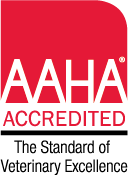“Periodontal disease is the most common dental condition in dogs and cats – by the time your pet is 3 years old, he or she will very likely have some early evidence of periodontal disease, which will worsen as your pet grows older if effective preventive measures aren’t taken, according to the American Veterinary Medical Association. (AVMA) Dental disease can be associated with other serious health problems such as heart disease and kidney disease. Ross Hospital for Animals recognizes the importance of dental health for our furry companions.
To schedule your pets dental cleaning please call our office 248-642-2050
Dental issues found in people are often found in animals, for example:
- Broken teeth and roots
- Periodontal disease
- Abscesses or infection teeth
- Cysts or tumors in the mouth
- Fractured jaw
- Palate defects (such as cleft palate)
Anyone or a combination of these signs may indicate your pet has a progressing or severe oral disease:
- Halitosis (bad breath)
- Reduced/absent appetite with potential secondary weight loss
- Preference for soft food or table scraps over normal hard kibble
- Chewing on one side of the mouth or slow, deliberate chewing
- Reduction in grooming behavior (especially cats)
- Pawing at the mouth or face
- Excessive sneezing, nasal discharge, or salivation
What can you expect from a dental procedure? Dentistry includes:
- Physical examination of the mouth
- Preoperative bloodwork – ensuring the pet is healthy for general anesthesia
- General anesthesia
- Intraoral Radiology
- Scaling – removal of tartar by ultrasonic scaler
- Polishing – smoothing the surface and decrease the adhesive ability of plaque
- Periodontal probing – identifying any tooth socket erosion
- Charting – record our findings and treatments
- Extraction and Oral Surgery – we are very conservative and leave teeth in whenever possible.


